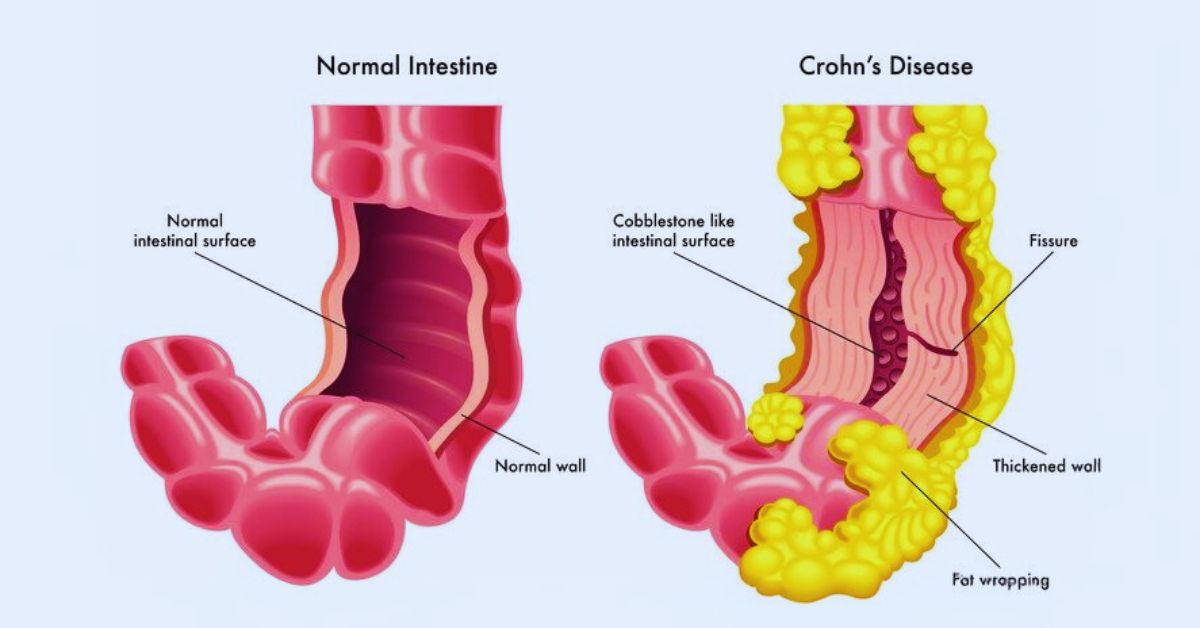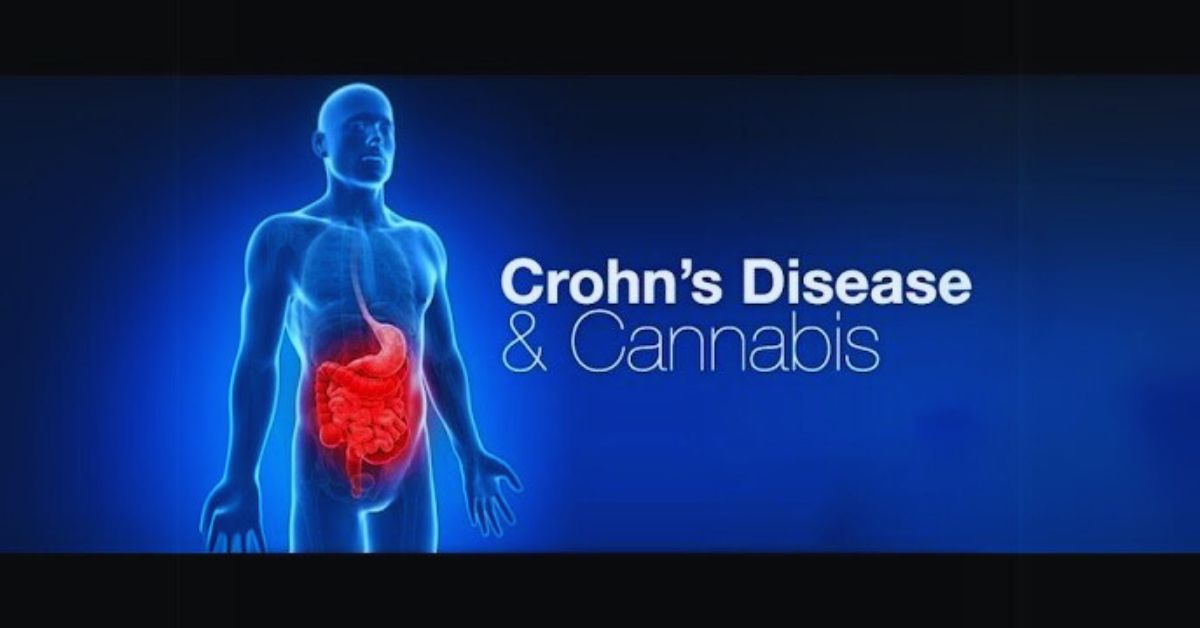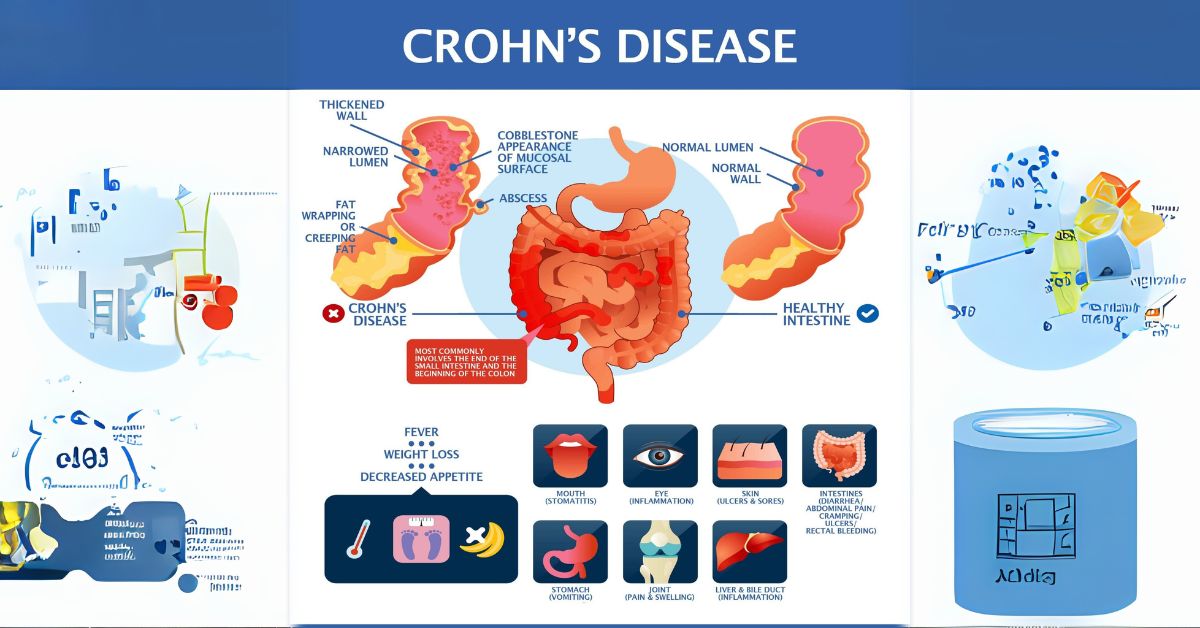Cannabidiol, or CBD, has become a buzzword in the health and wellness world. From reducing anxiety to easing chronic pain, this natural compound found in cannabis plants is being hailed as a potential game-changer for many health conditions. But CBD Help Crohn’s Disease, a chronic inflammatory bowel disease (IBD) that affects millions of people worldwide?
Crohn’s disease causes inflammation in the digestive tract, leading to symptoms like abdominal pain, diarrhoea, fatigue, and weight loss. While there’s no cure for Crohn’s, many patients are turning to CBD to manage their symptoms and improve their quality of life. But does it work?
In this blog post, we’ll explore the science behind CBD Help Crohn’s Disease, how it might benefit those with CBD ulcerative colitis (another form of IBD), and what the risks and side effects are. We’ll also discuss the best ways to take CBD for Crohn’s and whether cannabis could be a safe and effective treatment option.
By the end of this article, you’ll have a clear understanding of how CBD and cannabis might play a role in managing Crohn’s disease and other inflammatory conditions. Let’s dive in!
Can Cannabis Help Crohn’s Disease?
Cannabis Crohn’s disease has been used for centuries to treat various ailments, and recent research suggests it might be helpful for Crohn’s disease. The cannabis plant contains over 100 compounds called cannabinoids, with CBD and THC being the most well-known. These compounds interact with the body’s endocannabinoid system, which regulates inflammation, pain, and immune response.
Studies have shown that cannabis can reduce inflammation in the gut, which is a key factor in Crohn’s disease. For example, a 2013 study published in the journal Clinical Gastroenterology and Hepatology found that cannabis use improved symptoms in 10 out of 11 Crohn’s patients. While more research is needed, these findings suggest that cannabis could be a promising treatment option.
The Best Edibles for Crohn’s-disease

Edibles are a popular way to consume cannabis, especially for those who prefer not to smoke. For Crohn’s patients, edibles can be a convenient and discreet way to manage symptoms. Here are some of the best options:
- CBD Gummies: These are easy to dose and come in various flavours. They’re an excellent option for those new to CBD.
- THC-Infused Chocolate: Chocolate can help mask the taste of Cannabis and Crohn’s provides a soothing effect.
- CBD Capsules are ideal for those who want a precise dose without added sugar or flavourings.
When choosing edibles, starting with a low dose and gradually increasing it until you find what works best for you is essential.
Does Weed Help Crohn’s?
The short answer is that it might. Many Crohn’s patients report that using cannabis helps relieve their symptoms, including pain, nausea, and loss of appetite. However, it’s important to note that most of the evidence is anecdotal, and more research is needed to confirm these benefits.
One thing to keep in mind is that cannabis contains THC, the compound responsible for the “high” feeling. While THC can provide relief for some, others may prefer CBD, which doesn’t have psychoactive effects.
CBD for Crohn’s | Crohn’s Disease Cannabinoid Receptors

CBD has gained popularity as a natural remedy for a wide range of health issues, including Crohn’s disease. Unlike THC, CBD doesn’t make you feel high, making it a more appealing option for many patients.
Research suggests that CBD IBD reduces inflammation and regulates the immune system. A 2018 study published in the journal Cannabis and Cannabinoid Research found that CBD could improve the quality of life for IBD patients. However, more clinical trials are needed to understand its effects fully.
Does Cannabis Help Crohn’s Disease?
The answer to this question isn’t straightforward. While some studies and patient reports suggest that cannabis can help manage Crohn’s symptoms, others argue that it only provides temporary relief without addressing the underlying cause of the disease.
For example, a 2014 study published in Digestive Diseases and Sciences found that cannabis improved symptoms but didn’t reduce inflammation in the gut. It suggests that while cannabis might help with symptom management, it may not be a cure for Crohn’s disease.
Cannabis for Crohn’s Disease | Cannabis and Crohn’s
For those considering cannabis as a treatment option, it’s essential to understand the different ways it can be used. Here are some standard methods:
- Smoking or Vaping: Provides quick relief but may not be suitable for everyone, especially those with lung issues.
- Edibles: Offer longer-lasting effects but take longer to kick in.
- Topicals: These can be applied directly to the skin to relieve localized pain.
Each method has pros and cons, so choosing the one that best suits your needs is essential.
Can CBD Help Crohn’s Disease or Ulcerative Colitis?

Both Crohn’s Disease CBD and ulcerative colitis are forms of IBD, but they affect different parts of the digestive tract. While Crohn’s can affect any part of the gut, ulcerative colitis is limited to the colon.
Research suggests that Crohn’s disease cannabinoid receptors and ulcerative colitis reduce inflammation and regulate the immune system. However, the effectiveness may vary depending on the individual and the severity of their condition.
What’s the Difference Between Crohn’s Disease and CBD Ulcerative Colitis?
While both conditions are forms of IBD, there are some key differences:
- Location: Crohn’s can affect any part of the digestive tract, while ulcerative colitis is limited to the colon.
- Symptoms: Crohn’s often causes abdominal pain and diarrhoea, while ulcerative colitis is more likely to cause bloody stools.
- Treatment: The treatment options for both conditions are similar, but the approach may vary depending on the specific symptoms.
Risks and Side Effects of CBD
While CBD is generally considered safe, it’s not without risks. Some potential side effects include:
- Dry Mouth: CBD can reduce saliva production, leading to a dry mouth.
- Drowsiness: High doses of CBD may cause drowsiness or fatigue.
- Interactions with Medications: CBD can interact with certain medications, so it’s essential to consult your doctor before using it.
How to Take CBD for Crohn’s Disease or Ulcerative Colitis?
If you’re considering using Crohn’s disease cannabinoid receptors, here are some tips to get started:
- Start with a Low Dose: Start with a small amount and gradually increase it until you find the correct dose.
- Choose the Right Form: CBD is available in various forms, including oils, capsules, and edibles. Choose the one that best suits your needs.
- Consult Your Doctor: Talk to your healthcare provider before starting any new treatment.
Is CBD a Safe and Effective Treatment for IBD?
The safety and effectiveness of CBD for IBD are still being studied. While early research is promising, more clinical trials are needed to confirm its benefits and determine the best dosages and forms.
What Types of CBD Are Best for IBD?
Regarding CBD helps Crohn’s Disease, not all products are created equal. Here are some of the best options:
- Full-Spectrum CBD: Contains all the compounds found in the cannabis plant, including THC (in small amounts).
- Broad-Spectrum CBD: Contains multiple cannabinoids but no THC.
- CBD Isolate: Pure CBD with no other compounds.
Each type has its benefits, so choosing the one that works best for you is essential.
Can Marijuana or CBD Help With My Crohn’s Disease?
The answer depends on your individual needs and preferences. While some patients find relief with cannabis or CBD, others may not experience the same benefits. It’s essential to weigh the pros and cons and consult your doctor before deciding.
Tips for Everyday Challenges From Crohn’s
Living with Crohn’s disease can be challenging, but there are ways to manage your symptoms and improve your quality of life. Here are some tips:
- Follow a Healthy Diet: Avoid foods that trigger your symptoms and focus on a balanced diet.
- Stay Hydrated: Drink plenty of water to prevent dehydration.
- Manage Stress: Practice relaxation techniques like yoga or meditation.
Conclusion
While more research is needed, there’s growing evidence that CBD Help Crohn’s Disease by reducing inflammation and improving symptoms. Whether you choose CBD, cannabis, or a combination of both, it’s essential to consult your doctor and start with a low dose.
Understanding the potential benefits and risks lets you decide whether CBD is right.
FAQs
Can CBD cure Crohn’s disease?
No, CBD cannot cure Crohn’s disease, but it may help manage symptoms like pain and inflammation.
Is CBD safe for Crohn’s patients?
CBD is generally considered safe, but it’s essential to consult your doctor before using it, especially if you’re taking other medications.
What’s the best way to take CBD for Crohn’s?
The best method depends on your preferences. Options include oils, capsules, edibles, and topicals.
Can cannabis help with ulcerative colitis?
Some studies suggest that cannabis may help manage symptoms of ulcerative colitis, but more research is needed.
Are there any side effects of using CBD for Crohn’s?
Possible side effects include dry mouth, drowsiness, and interactions with medications.






